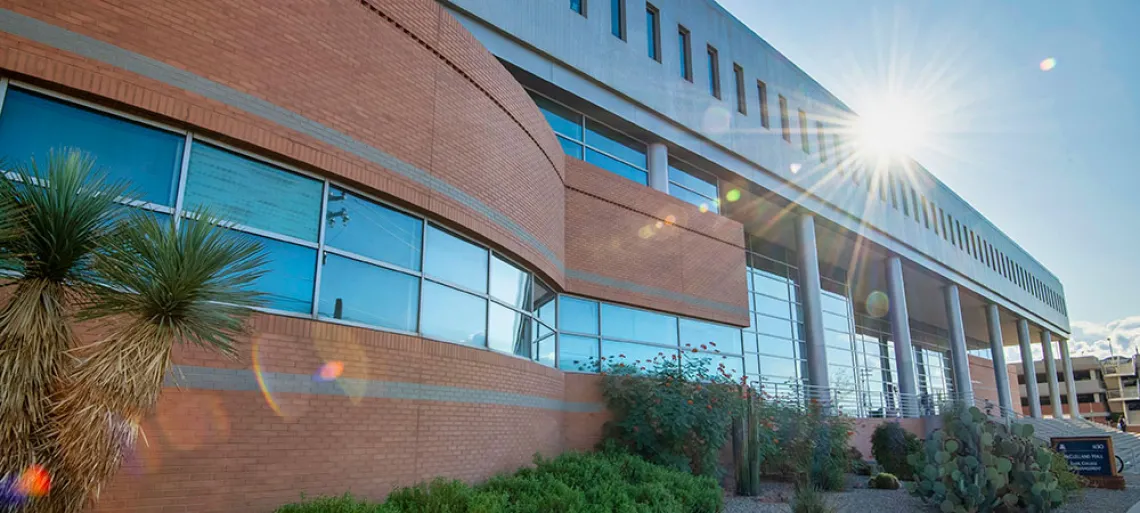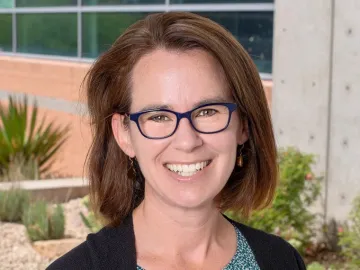Eller Research Wins Best Paper at Journal of the Association of Environmental and Resource Economists

Research conducted by Ashley Langer, associate professor of economics, and Derek Lemoine, associate professor of economics in the Eller College of Management, won Best JAERE Paper: The 2022 Ralph C. d’Arge and Allen V. Kneese Award for Outstanding Publication in the Journal of the Association of Environmental and Resource Economists.
The award winning paper Designing Dynamic Subsidies to Spur Adoption of New Technologies, analyzes the efficient subsidy for durable good technologies. Langer and Lemoine demonstrate that a policy maker faces a tension between intertemporally price discriminating by designing a subsidy that increases over time and taking advantage of future technological progress by designing a subsidy that decreases over time.


“We liked this paper because it looks different from many other papers, asking a new type of question and combining types of theoretical and data-driven methods that are not often brought together,” says Lemoine. “We both learned a lot from working on it. We really appreciated that the selection committee valued these same features.”
The JAERE publishes research that is dedicated to environmental and natural resource issues. The journal’s main mission is to deliver a medium for the scholarly exchange of ideas in the connection of human behavior and the natural environment. Editors and coeditors of the Journal are some of the world’s top economists.
“I think that this paper is important because it lays out some of the tradeoffs that governments face when they make policies that change over time,” says Langer. “This work has implications for many different types of policies, including residential solar and electric vehicle subsidies, individual incentives for vaccination, and loans for investments to protect against severe weather.”
Langer uses frontier economic methods to evaluate the impact of environmental and energy policies. Professor Langer’s interest in environmental economics stems from an observation that—because individual choices have environmental repercussions—policies such as subsidies, regulations, and standards are often crucial for improving environmental outcomes. Building on this observation, her research evaluates how alternative policy approaches will change environmental outcomes by merging theoretical insights with econometric modelling that allows her to recover the drivers of individuals’ and firms’ behavior. Professor Langer studies fundamental forces that affect many industries (for instance, the role of dynamic incentives on policy design and enforcement), major industries with widespread environmental impact (for instance, the use of gasoline for transportation), and econometric approaches to solving research questions faced far beyond environmental economics (for instance, the measurement of policy uncertainty). Before coming to the University of Arizona in 2012, Professor Langer worked at the University of Michigan and the Brookings Institution, and she earned degrees from the University of California-Berkeley and Northwestern University.
Lemoine joined the Eller College of Management in 2011 after earning his PhD in Energy and Resources from the University of California, Berkeley. In addition to teaching at Eller, he is also a research associate for the National Bureau of Economic Research and an associate fellow for the Centre for Economic Policy Research (CEPR) in the Climate Change Research and Policy Network. His research investigates the dynamics of optimal environmental policy and energy systems, the economic consequences of climate change, how uncertainty affects the value of avoiding climate change, how to design policies to control climate change, and the value of short- and long-run weather forecasts, among other topics.

